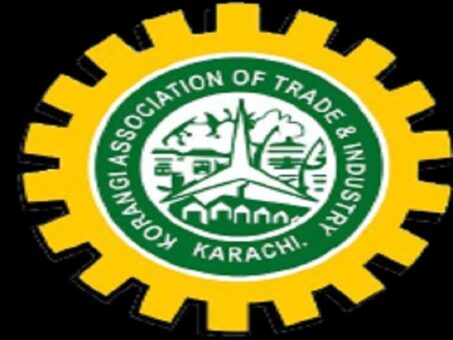The Korangi Association of Trade and Industry (KATI) has launched a scathing attack on the recently unveiled budget 2024-25, accusing the government of a blatant disregard for the nation’s industrial sector.
KATI President Johar Qandhari expressed profound disappointment, lamenting the budget’s failure to address the critical developmental needs of industries or propose any concrete strategy to alleviate production costs or the crippling burden of energy prices.
KATI Chief highlighted a particularly egregious element of the budget – a staggering 40% hike in lump sum tax on exports. This unprecedented move has sent shockwaves through the business community, breeding a climate of deep concern.
He further emphasized the concerning trend of increasing the burden on existing taxpayers without a commensurate effort to broaden the tax base. This myopic approach, coupled with a dearth of measures to incentivize investment and the imposition of additional taxes and duties on raw materials, will inevitably lead to a domino effect – rising production costs, stifled industrial growth, and ultimately, a spike in consumer product prices.
“The budget displays a glaring omission – a complete lack of policy initiatives aimed at lowering production costs or granting any form of relief in energy prices,” Qandhari scathingly remarked. “This critical oversight serves as a significant disincentive for both domestic and foreign investors. Rising operational costs make Pakistan a progressively less attractive proposition, potentially forcing investors to consider relocating their operations to more fiscally hospitable shores.”
KATI Chief meticulously outlined the multitude of financial pressures currently squeezing the lifeblood out of Pakistani industries. These include, but are not limited to, exorbitant interest rates, usurious loan terms, the highest electricity and gas tariffs in the region, exorbitant levies on petroleum products, ever-increasing transportation costs, and the rising tide of employee salaries. He poignantly stressed that industrialists are left to navigate this treacherous financial landscape, all while grappling with challenges related to infrastructure deficiencies, security concerns, personal expenses, and the ever-present need to fund their children’s education. This confluence of factors, Qandhari contends, poses an existential threat to the profitability and long-term viability of Pakistani businesses.
Qandhari further directed his ire towards the budget’s adherence to International Monetary Fund (IMF) demands, which translate to additional tax burdens on existing taxpayers. He warned that such short-sighted measures will only exacerbate the inflation crisis, pushing an even greater number of citizens below the poverty line. He also pointed out the glaring disparity – the complete exemption of the agricultural sector, which contributes a significant 26% to the GDP, from any form of taxation.
“The government’s ambitious target of achieving an economic growth rate exceeding 3% hinges on a fundamental shift in policy direction,” KATI Chief asserted. “The path to prosperity lies in tax reduction, the creation of a robust incentive structure for the export industry, and a significant expansion of the tax base to alleviate the undue pressure on current taxpayers. Failure to implement these essential measures will have dire consequences, leading to a decline in investment, widespread industrial closures, and ultimately, a severe crippling of the national economy.”
In conclusion, Qandhari characterized the federal government’s neglect of industrial development as a blatant disregard for the nation’s economic engine. He implored the government to enact immediate policy changes that demonstrably support the industrial sector and pave the way for sustainable economic growth.
